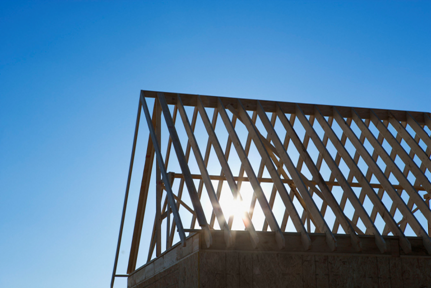
By Senator Kip Bateman and Assemblyman Jack Ciattarelli

The New Jersey Superior Court Appellate Division will soon issue a ruling that will determine if municipalities must build tens of thousands of affordable housing units that they were not required to construct during the Council On Affordable Housing’s “gap period” of 1999 to 2015.
If the court ignores current rules and law by mandating retroactive affordable housing obligations, municipalities statewide would be forced to build more than 100,000 new housing units by 2025.
This is truly a case that could forever change the character of many New Jersey communities. Take rural Branchburg, for example, which could be forced to increase the number of residential units in the township by 60 percent! It should be clear that the consequences of such a ruling would be staggering.
Court-ordered overdevelopment will destroy carefully preserved open space and render communities unrecognizable within the decade. Overcrowded classrooms will put our children at risk of missing out on a quality education.
Hardworking taxpayers will bear the brunt of this ruling. Property taxes will skyrocket as towns are forced to build new schools and expand police and emergency services to accommodate the influx of new residents.
The Council on Affordable Housing (COAH) was infamous for its 40-year reign of chaos and confusion. That the courts are now considering forcing municipalities to abide by the defunct agency’s unachievable quotas and flawed methodology is alarming.
During the 16-year gap period, COAH failed to devise a formula clarifying how much affordable housing each town was responsible for building. The lack of information has sent municipalities scrambling to understand these obligations.
The Branchburg Township Committee has called this dilemma “the most important issue facing the township in its history,” and rightly so. Branchburg, like so many other municipalities in our district and across the state, is a rural community without the infrastructure or space to support an additional 3,000 units of housing.
There are also concerns that many rural communities lack the mass transit infrastructure that would provide the residents of affordable housing access to job centers. As residents of most rural communities are aware, local job opportunities are few and far between. Shouldn’t affordable housing be built closer to transit hubs or where jobs are actually located?
This is not a matter of township officials attempting to skirt their obligations to provide affordable housing for those in need. Our local officials want to fulfill affordable housing obligations; they just don’t know what they are. Municipalities need a clear set of realistic guidelines, not the unworkable, outrageous obligations suggested by COAH.
 We have introduced legislation that includes a short-term solution to address our concerns regarding the dangerous precedents set by previous court rulings, as well as a comprehensive affordable housing omnibus bill to solve this problem once and for all.
We have introduced legislation that includes a short-term solution to address our concerns regarding the dangerous precedents set by previous court rulings, as well as a comprehensive affordable housing omnibus bill to solve this problem once and for all.
In May we introduced S-2254 clarifying that municipalities cannot be forced to meet retroactive affordable housing requirements, specifically because the Fair Housing Act does not impose such requirements.
We introduced S-2254 after an Ocean County court judge incorrectly ruled that municipalities must meet the gap period affordable housing requirements. If the New Jersey Supreme Court ultimately issues a similar ruling, this bill will protect taxpayers statewide from being victimized. The legislation has gained bipartisan support and we expect it to move swiftly through the Legislature.
Our comprehensive affordable housing reform bill, S-2216, allows municipalities to administer their own affordable housing obligations, returning flexibility and autonomy to all communities. Doing so will protect the environment and open space, ease the property tax burden and prevent costly construction in towns that are already battling overcrowding.
This bill repeals the 2.5 percent commercial development fee to incentivize more developers to build affordable housing. This session, we have also added a reasonable RCA-like option for municipalities to pay into a municipal or state affordable housing trust fund. This new component is essential for communities who are at risk of overdevelopment.
If our communities are overrun with high density housing that destroys open space, can we really be called the Garden State? How can we impose higher property taxes on our residents who are already struggling with nation high tax burdens? We cannot wait any longer for the courts to find a resolution. Enacting our bipartisan reforms is the best way to provide enough affordable housing for those who need it most, while respecting the unique needs of communities across New Jersey.
________


